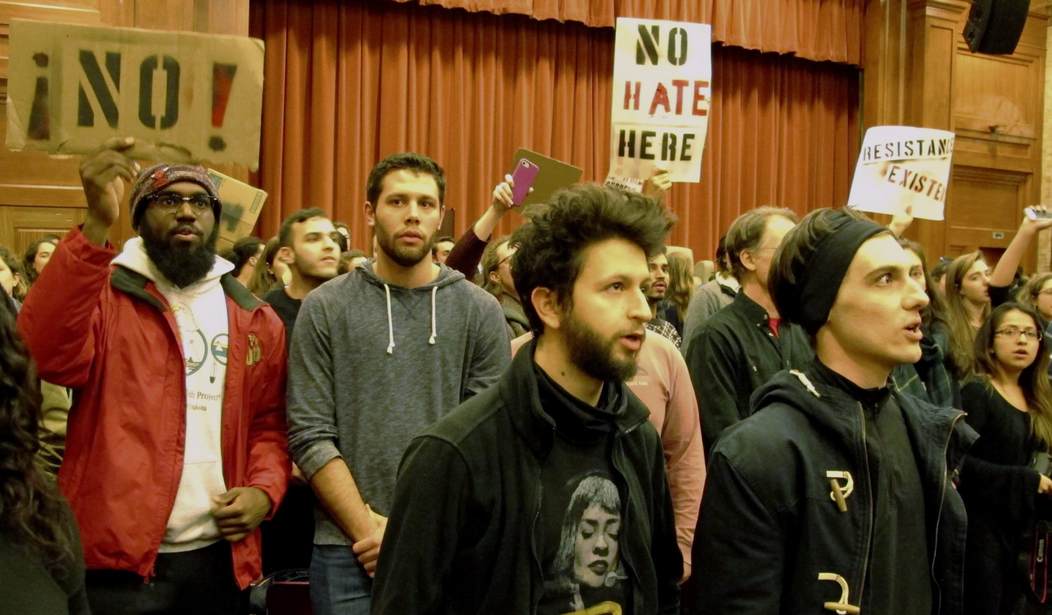Antifa protesters loves them some violence. From punching people with cameras to rioting because you don’t like who is talking. A few times, apparently. So, leave it to the New York Times to run an op-ed that seems to argue that the rioters who disrupt speech of those they disagree with are the true guardians of free speech.
The recent student demonstrations at Auburn against Spencer’s visit — as well as protests on other campuses against Charles Murray, Milo Yiannopoulos and others — should be understood as an attempt to ensure the conditions of free speech for a greater group of people, rather than censorship. Liberal free-speech advocates rush to point out that the views of these individuals must be heard first to be rejected. But this is not the case. Universities invite speakers not chiefly to present otherwise unavailable discoveries, but to present to the public views they have presented elsewhere. When those views invalidate the humanity of some people, they restrict speech as a public good.
In such cases there is no inherent value to be gained from debating them in public. In today’s age, we also have a simple solution that should appease all those concerned that students are insufficiently exposed to controversial views. It is called the internet, where all kinds of offensive expression flourish unfettered on a vast platform available to nearly all.
The great value and importance of freedom of expression, for higher education and for democracy, is hard to overestimate. But it has been regrettably easy for commentators to create a simple dichotomy between a younger generation’s oversensitivity and free speech as an absolute good that leads to the truth. We would do better to focus on a more sophisticated understanding, such as the one provided by Lyotard, of the necessary conditions for speech to be a common, public good. This requires the realization that in politics, the parameters of public speech must be continually redrawn to accommodate those who previously had no standing.
No, it doesn’t.
The “parameters of public speech” should be, and should always be, everyone gets their say. It’s the free market of ideas, for crying out loud. Worthy ideas will win their place, while less-than-worthy ideas will eventually die out. It’s up to each speaker to make the most compelling case possible in an effort to, basically, win.
That is what a real “attempt to ensure the conditions of free speech for a greater group of people” looks like.
One would think the “provost for faculty, arts, humanities, and diversity, and professor of comparative literature at New York University” would understand the difference, but clearly he doesn’t. Instead, he has simply given his tacit endorsement to the next swarm of thugs who decide to attack their opponents because they say things the thugs don’t like.
That’s not ensuring the conditions of free speech for anyone. After all, once it’s accepted as a viable tactic, what makes anyone think it won’t be turned against them?









Join the conversation as a VIP Member